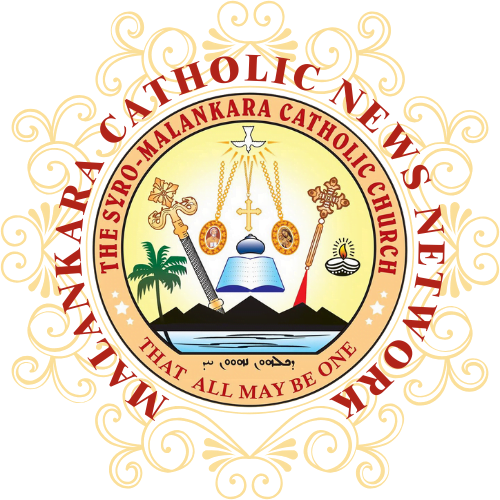Pope John Paul II has commended the Syro-Malankara Church as “one of the fastest growing Catholic communities in the world.”
That Church, youngest among the Catholic Church´s 21 Oriental groups, began on Sept. 20, 1930, when the Catholic Church received two bishops, a priest, a deacon and a layman from the Orthodox Syrian Church. The Vatican allowed them to retain their Antiochean liturgy and canonical traditions.
The Syro-Malankara Church has 325,000 members in India, spread over Bathery, Marthandam, Moovattupuzha and Tiruvalla dioceses, and Trivandrum archdiocese.
It now also has a “large number of vocations to the priesthood and Religious life” and “many educational and welfare institutions,” the pope said on May 13 when he met Archbishop Cyril Mar Baselios of Trivandrum, head of the Church, and seven other bishops at the Vatican as they ended their five-yearly “ad limina” visit. Earlier, the pope met them individually, and had lunch and Mass with them together.
The Bishops visited various Vatican offices, including the Congregation for the Evangelization of Peoples and the Congregation for Oriental Churches. The Rome visit coincided with the “ad limina” visit of Syro-Malabar bishops.
The Catholic Church in India comprises the Latin, Syro-Malabar and Syro-Malankara rites. The Latin Church follows the Roman liturgy, introduced by European missioners in the 15th century, while the other two, both based in the southern state of Kerala, follow Oriental liturgies and customs, and trace their origins to Saint Thomas the Apostle.
While meeting with the Syro-Malankara bishops, the pope noted anniversaries associated with the Church. He said that Pope Pius XI welcomed the Syro-Malankara Church into full union with Rome 70 years ago, after 350 years of separation, and that Archbishop Geevarghese Mar Ivanios, “a tireless apostle of unity” who led them into the Catholic Church, died 50 years ago.
The pope also noted that Indians take pride in a rich cultural and spiritual heritage, expressed through contemplation, simplicity, harmony, detachment, non-violence, discipline, frugal living and the thirst for learning and philosophical enquiry. “These traits,” the pope said, permeate the Syro-Malankara community and enable it to communicate the Gospel “in a way that is faithful both to her own traditions and to the Asian soul.”
The Holy Father said that “the mystical heritage” of India was expressed “in the spiritual life” of Syro-Malankara Catholics, in their “time-honored rites” and in their liturgical tradition.
He urged the bishops to remind their people about the need for “an ever deeper reflection on moral and social issues,” especially at this time of “growing secularism” and “blatant disregard for the sanctity of human life.”
The pope also said that the Church´s education and social services give it “an excellent position” to prepare people to face the issues “in a truly human manner.” He said all Christians must oppose “the current crisis of values” and “remind others of the universal truths which must manifest in daily living.”
Underscoring the “inculturation of Christian ethics at all levels of human society,” he added that the Oriental Church´s “long experience as a small community of Christians in a predominantly non-Christian land” had prepared it well to become “a fitting instrument” to transform society.
He urged Syro-Malankara Catholics to make sure that the inculturation of Christ´s saving message “is never diluted or altered in an attempt to make it more culturally or socially acceptable.”
He then asked the bishops to work closely with their priests and “encourage young people” to answer God´s call to priesthood and Religious life. He said he also wants them to ascertain that their seminaries “are always models of formation” and their priests and Religious properly trained for their mission.

